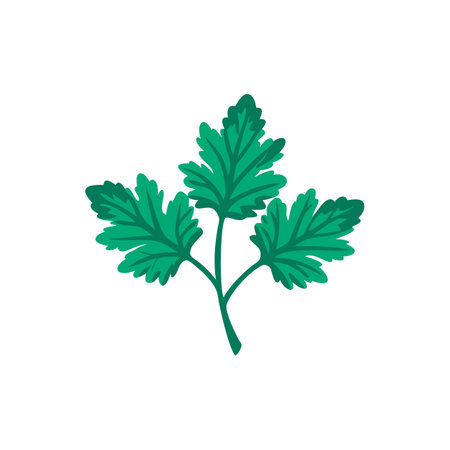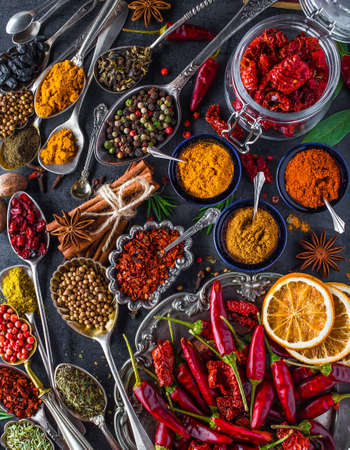Introduction to Herbal Remedies in British Culture
Herbal remedies have been woven into the fabric of British life for centuries, with roots stretching back to ancient times when local plants were commonly used for healing and maintaining health. From the rolling meadows of the English countryside to bustling city apothecaries, the tradition of using botanicals as natural medicine remains deeply embedded in daily routines. Today, this heritage endures, blending historical wisdom with contemporary wellness practices. Many in the UK turn to traditional herbal remedies not just out of nostalgia, but because these approaches offer gentle, holistic support for strengthening immunity and overall wellbeing. The ongoing popularity of herbal medicine reflects a growing desire to reconnect with nature, prioritise balance, and embrace time-honoured methods that have supported communities for generations.
2. Iconic British Botanicals and Their Benefits
Britain’s countryside is rich with native botanicals that have been cherished for generations, not only for their culinary charm but also for their reputed wellness properties. When it comes to supporting the immune system, several iconic British herbs stand out thanks to their time-honoured uses in folk remedies. Let’s take a closer look at some of these traditional plants and the benefits they are believed to offer.
| Botanical | Traditional Use | Immune-Boosting Reputation |
|---|---|---|
| Elderberry (Sambucus nigra) | Syrups, teas, tinctures | Rich in antioxidants and vitamin C; thought to help fend off colds and flu |
| Nettle (Urtica dioica) | Soups, teas, infusions | High in vitamins A and C; supports overall vitality and immune resilience |
| Echinacea (Echinacea purpurea) | Tinctures, capsules, herbal blends | Popular in modern herbalism; may reduce severity and duration of cold symptoms |
| Hawthorn (Crataegus monogyna) | Jams, jellies, teas | Traditionally valued for heart health; believed to support general wellness and recovery |
The use of these botanicals often goes beyond mere folklore. Many people in the UK still turn to elderberry syrup at the first sign of a sniffle or brew a nettle tea as a spring tonic. Echinacea has become a staple in many households during the colder months, while hawthorn continues to be celebrated for its gentle restorative qualities. Embracing these local plants can be an easy way to weave both tradition and natural support into your daily routine—helping to maintain balance and fortify your body’s natural defences in harmony with the British seasons.

3. Time-Honoured Remedies Passed Down Through Generations
Britain’s landscape, from wild hedgerows to cottage gardens, is rich with botanicals that have been cherished for centuries. Many classic British folk remedies have been lovingly passed down through families, their wisdom woven into daily life. These traditions focus on harnessing the immune-boosting power of nature through simple, accessible preparations.
Herbal Tonics for Robust Health
One of the most enduring practices in rural Britain is the making of herbal tonics. Elderberry syrup stands out as a staple during colder months; made by simmering elderberries with spices and honey, this deep purple elixir is believed to ward off colds and fortify the body. Likewise, nettle tonic, brewed from young spring nettles, is valued for its mineral-rich properties and gentle support for vitality.
Soothing Teas for Everyday Wellness
Teatime has a special place in British culture, and herbal infusions are no exception. Chamomile tea, with its calming aroma, is often sipped before bed to promote restful sleep—a key element of immune health. Peppermint tea aids digestion and provides gentle relief from seasonal sniffles. In the countryside, elderflower tea is enjoyed as a refreshing drink that supports respiratory wellness and gently cleanses the system.
Tinctures: Concentrated Drops of Tradition
Traditional tinctures distil the potency of British herbs into convenient drops. Echinacea root tincture, though originally Native American, has found a home in many British kitchens as a trusted ally during winter. Hawthorn berry tincture is another local favourite, supporting both heart health and overall resilience. These small bottles encapsulate generations of knowledge, offering a practical way to integrate botanicals into daily routines.
By embracing these time-honoured remedies—tonics simmered over the stove, teas steeped at sunset, and tinctures tucked away in kitchen cupboards—British households continue to nurture immunity in harmony with the rhythms of nature and tradition.
4. Rituals and Routines for Everyday Immunity
Building a resilient immune system is not simply about what you consume, but also how you weave wellness into the fabric of your daily life. In Britain, where each season brings its own mood and weather, embracing herbal rituals that echo the natural rhythms can be both soothing and sustaining. Creating mindful moments with traditional British botanicals—whether it’s a morning cup of nettle tea or an evening wind-down with chamomile—offers gentle support to your body’s defences.
Embracing Herbal Infusions in Tune with the Seasons
Letting nature guide your choices helps keep wellness practices fresh and effective. For example, elderflower is favoured in spring as allergies bloom, while rosehip becomes a staple in autumn for its vitamin C content. By rotating your herbal remedies according to seasonal needs, you can stay harmoniously connected to the land and its cycles.
| Season | Herbal Remedy | Wellness Ritual |
|---|---|---|
| Spring | Nettle & Elderflower | Morning infusion for clearing and energising |
| Summer | Lemon Balm & Peppermint | Refreshing afternoon tisane to cool and soothe |
| Autumn | Rosehip & Thyme | Evening brew to boost immunity as days shorten |
| Winter | Echinacea & Chamomile | Bedtime tea for calming and fortifying against chills |
Savouring Small Moments: Daily Wellness Practices
Adopting small rituals can make all the difference in maintaining balance. Consider setting aside a few minutes at sunrise for deep breathing with a warming mug of thyme tea, or winding down after work by diffusing lavender oil and sipping on lemon balm. These simple acts create space for reflection and restoration, supporting both mind and body.
Tips for Making Herbal Rituals Part of Your Routine:
- Set reminders: Place a favourite teapot or herbal jar by your kettle as a visual cue.
- Create a ritual spot: Dedicate a cosy corner with soft lighting for your daily brew.
- Tune into nature: Open a window or step outside while enjoying your infusion to connect with the local landscape.
- Keep it simple: Choose one or two herbs per season and allow yourself time to appreciate their qualities fully.
A Gentle Invitation to Pause and Replenish
The British countryside has long offered comfort through its hedgerows and gardens. By honouring these traditions in your own home—one cup of herbal goodness at a time—you nurture resilience from within, attuned to the gentle ebb and flow of the seasons.
5. Modern Scientific Perspectives on British Herbal Medicine
In recent years, scientific interest in traditional British botanicals has grown, with research exploring the efficacy of herbal remedies for immune health. Numerous studies have investigated plants such as elderberry, echinacea, and nettle—long celebrated in British folk medicine for their potential to support the body’s natural defences. For example, laboratory tests suggest elderberry may help reduce the duration of cold and flu symptoms, while echinacea is often studied for its role in modulating immune responses.
The NHS (National Health Service) recognises that some individuals choose to use herbal remedies alongside conventional treatments. While the NHS does not officially endorse most herbal supplements due to varying levels of evidence and regulation, it encourages open discussion with healthcare professionals before starting any new herbal regime. This helps ensure safety and minimises interactions with prescribed medications.
Modern integrative healthcare in the UK increasingly acknowledges the value of complementary approaches—where herbal remedies can play a supportive role when used responsibly. Many GPs are open to discussing how traditional botanicals might complement standard care, particularly for those looking to enhance overall wellbeing and immunity through holistic means. However, it remains essential to source quality products from reputable suppliers and rely on evidence-based guidance.
Ultimately, the blending of scientific research with centuries-old British traditions offers a balanced path forward. By combining trusted herbal wisdom with modern medical insights, individuals can make informed choices that nurture both mind and body—creating a lifestyle that values resilience and equilibrium in everyday life.
6. Where to Find and How to Use British Botanicals Safely
For those eager to embrace the power of traditional British botanicals, sourcing and using these herbs responsibly is just as important as understanding their benefits. The UK countryside and local markets offer a wealth of options, but ethical foraging, careful sourcing, and safe preparation are key to preserving both personal health and the natural environment.
Ethical Foraging in the British Countryside
If you’re interested in wildcrafting native plants like elderflower, nettle, or rosehips, always forage ethically. Follow the “leave no trace” principle—take only what you need, never uproot entire plants, and avoid protected areas or rare species. Familiarise yourself with the Wildlife and Countryside Act 1981 to ensure you stay within legal guidelines. A good field guide or joining a local foraging group can help you correctly identify herbs and avoid potentially harmful lookalikes.
Sourcing Quality Herbs Locally
Not everyone has access to wild spaces, but quality botanicals can be found at reputable health food shops, farmers’ markets, or British herbal apothecaries. Look for certified organic products when possible and ask about the origin of the herbs—transparency from sellers is a good sign of ethical sourcing. Supporting local growers also helps reduce your environmental footprint and sustains traditional herbal knowledge within communities.
Preparing British Herbs at Home
Preparation methods vary according to the plant: teas (infusions), tinctures, syrups, and balms are all popular ways to harness botanical benefits. Always start with small quantities to observe how your body reacts, especially if you’re new to herbal remedies. Wash all fresh botanicals thoroughly and follow trusted recipes or consult qualified herbalists for guidance on dosages and combinations.
Safety First: Consult When Unsure
Herbal remedies are generally gentle, but some plants may interact with medications or be unsuitable during pregnancy or for those with chronic conditions. If in doubt, consult a medical professional or a registered medical herbalist before introducing new botanicals into your routine.
By approaching British botanicals with respect—for both tradition and nature—you’ll not only support your own wellbeing but also contribute to the sustainability of Britain’s rich herbal heritage.


